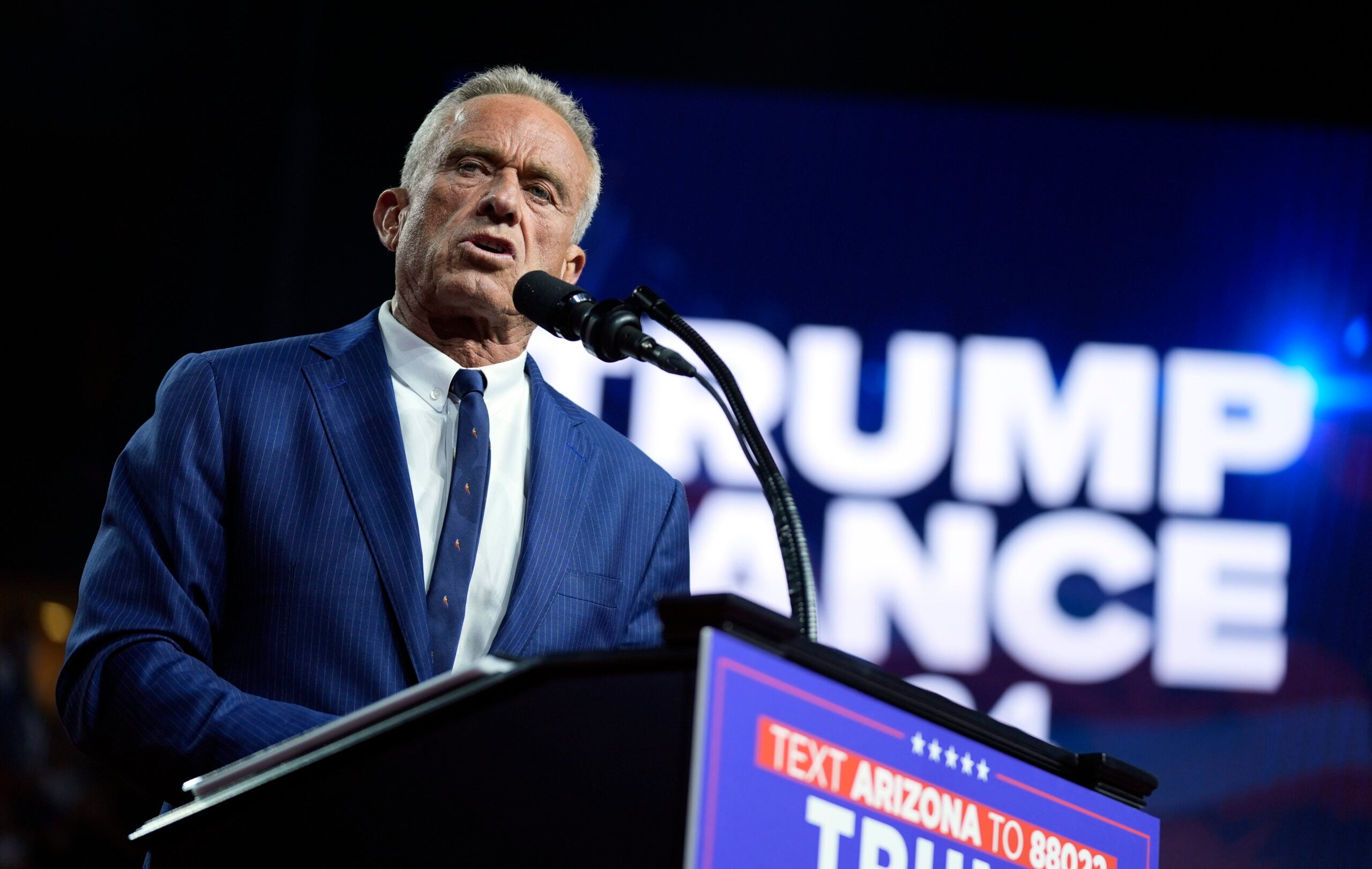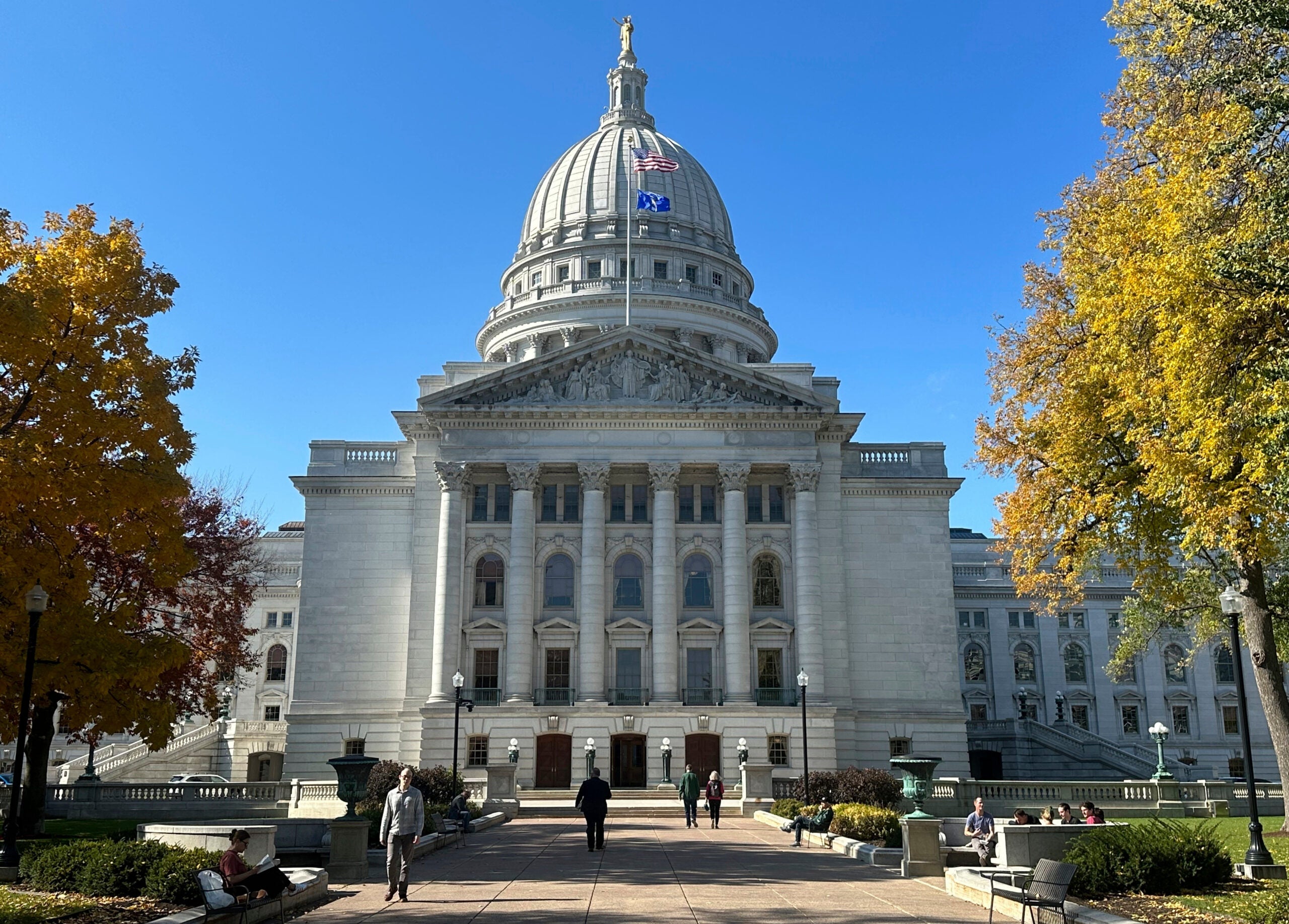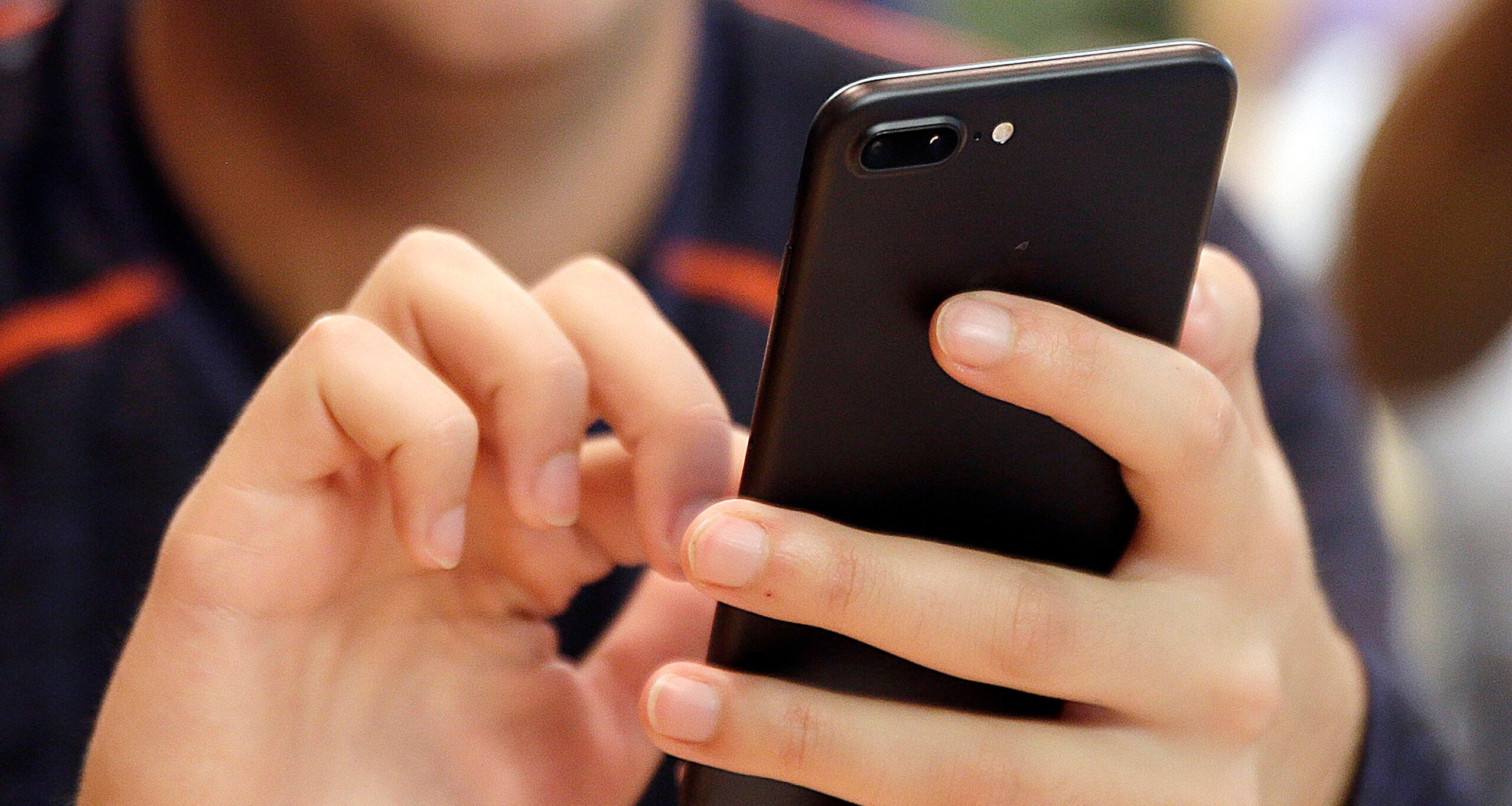Robert F. Kennedy Jr. is suing the Wisconsin Elections Commission in hopes of getting his name removed from Wisconsin’s presidential ballot ahead of the November presidential election.
It comes days after commissioners said state law requires candidates who have filed for office must remain on the ballot unless they die.
Kennedy’s lawsuit, filed Tuesday in Dane County Circuit Court, argues the commission’s decision to place him on the ballot despite suspending his presidential bid Aug. 23 and endorsing former President Donald Trump violates his right to free speech and association under the U.S. Constitution.
News with a little more humanity
WPR’s “Wisconsin Today” newsletter keeps you connected to the state you love without feeling overwhelmed. No paywall. No agenda. No corporate filter.
A brief filed by Kennedy’s attorneys also argues Wisconsin laws setting different deadlines for major party and third party candidates to withdraw nominees from the ballot presents constitutional problems. State statute requires the Republican and Democratic parties to certify their nominees for president and vice president by 5 p.m. on the first Tuesday in September. The deadline for independent parties to file certification papers for their nominees is the first Tuesday in August.
“Politics is an ugly business,” said Kennedy’s brief. “While political maneuvering and gamesmanship will always be present and to a certain extent tolerated, the Supreme Court has been clear that it goes too far when there is a different playbook for the major parties than for the independent or third-party candidates.”
A Wisconsin attorney representing Kennedy did not immediately respond to a request for comment on the lawsuit.
Just one week before Kennedy filed his lawsuit, Wisconsin Elections Commission board member Mark Thomsen, a Democratic appointee, accused Trump and Kennedy of playing games late in the election cycle.
“Whatever games they’re playing, they have to play them with Kennedy on the ballot,” Thompson said.
After a motion to remove Kennedy from the ballot proposed by Republican commissioner Don Millis failed, the commission voted 5-1 to keep him on the ballot. The lone no vote came from Republican commissioner Robert Spindell, who is a Trump supporter and served as a false elector for him in 2020.
A spokesperson for the Wisconsin Elections Commission did not respond to a request for comment.
Kennedy says voters in red or blue states should still vote for him, but not voters in swing states
When Kennedy suspended his independent presidential bid on Aug. 23, he encouraged supporters to still vote for him in some states, but not others.
“If you live in a blue state, you can vote for me without helping or harming President Trump or Vice President Harris,” Kennedy said. “In red states, the same will apply.”
But when it comes to battleground states, like Wisconsin and Michigan, Kennedy said he would work to remove his name for the ballot because internal polling has shown he “would likely hand the election over to the Democrats, with whom I disagree on the most existential issues. “
On Tuesday, a Michigan judge denied Kennedy’s lawsuit aimed at getting him off the ballot. Court of Claims Judge Christopher Yates said Michigan law is clear that minor party presidential candidates can’t withdraw from the ballot after qualifying.
“Elections are not just games, and the Secretary of State is (SOS) is not obligated to honor the whims of candidates for public office,” Yates opinion said.
Kennedy has also filed a lawsuit in North Carolina, another electoral battleground, alleging that state’s election board violated the law by denying his request to be removed from the ballot. According to the Washington Post, Arizona and Florida granted Kennedy’s request while Nevada and Pennsylvania also took him off the general election ballot.
Kennedy’s Wisconsin brief contains a notable error. In one section comparing Kennedy to President Joe Biden, it mentions that both have been lifelong politicians, have great name recognition, “and both have vast experiences within government—each having served decades in Congress.”
While Biden served decades in the U.S. Senate, Kennedy has never served in Congress or been elected to public office.
Wisconsin Public Radio, © Copyright 2025, Board of Regents of the University of Wisconsin System and Wisconsin Educational Communications Board.







